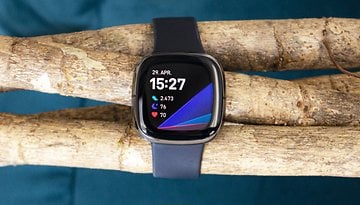2020 - You were a terrible year but a great teacher


Read in other languages:
The year 2020 is finally over! It was marked by pandemics, lockdowns, quarantines, carelessness, and some presidents who don't take the will of the people very seriously. Still, I wouldn't want to dismiss 2020 as a total disaster. After all, it has also brought about many things in us that might otherwise have remained hidden forever.
To say it right up front: Today may be January 7, 2021, but the coronavirus pandemic still reigns unabated. For the most part, we humans tend to simplify things at the turn of each year. Every year, January is used as a time for new beginnings and a general feeling that "now, everything will be better". Unfortunately, that thought does not hold up too well, as we end up throwing out the new, good resolutions overboard in as little as two or three weeks down the road, resuming our old habits and carrying on with everything in life just as it was before.
But it looks like much of what has happened in 2020 will remain. Apart from the many who have lost their lives way earlier than expected to the pandemic, there is a silver lining behind this ominous-looking cloud for the rest of us who made it to 2021.
Humans are capable of achieving great things in a short period of time if all of us work towards it.
Let us begin with the most important thing: the coronavirus vaccine. Personally, I'm still very impressed by this story. Two Germans with Turkish roots succeeded in what the whole world had been searching for and researching at full speed for months. At the beginning of the pandemic, I personally would not have bet five cents that a company from Germany, of all places, would be the first to succeed in developing what would turn out to be the salvation for mankind. If you exclude vaccination opponents, QAnon supporters, and lateral thinkers, then you could literally feel and hear a big sigh of relief in almost all channels worldwide.
The outstanding thing about this is that the technology that is used here in addition to the money that has been poured into the research sector because of a worldwide panic by so many countries is something that will probably help mankind with many other ailments. It is not too far to imagine that there will be great leaps in the realm of cancer treatment, for example.
It would have probably taken many more years to get the technology concerning mRNA to the level of where it is right now. If a research team were to succeed at some point in developing a "recipe" against cancer cells based on the new basic principles, it would be equivalent to landing on the moon. The difference between a lunar landing and this? The whole of humanity would gain direct, tangible benefits.
Germany and digitalization: Will it work after all?
As a German living abroad, it is not easy at times doing so. I don't mean that in reference to our dark past or to beer tourists who stagger around in a drunken manner at parties on islands. Rather, it always shocks me to see how far ahead many other countries are in terms of digitalization and the associated infrastructure.
I can still remember how it was in 2011, when I was in tranquil Estonia and its capital, Tallinn. Already at the airport, a Skype phone booth greeted me and invited me to make free calls. There were also free phone booths all over the city available for anyone to use. Okay, to be fair, Skype's headquarters was located in Tallinn at that point in time. But even beyond that, we can take a leaf out of Estonia's book when it comes to digitalisation. Almost 10 years ago, there was Wi-Fi available in every corner, applications to the authorities could be submitted digitally without any need for paperwork, and Estonia was open to the new era in other ways as well: business incubators were springing up all over the city, and advertisements for digital processes could be seen everywhere.
The events described here took place at a time when over in Germany, the Internet was still considered virgin territory with the hashtag "Zensursula" still being in vogue.
Online education in Germany - is something good happening?
When the first lockdown began in March and schools switched from physical classes to online teaching, I could immediately notice failures in the digital environment. Nothing was working properly. Overstretched teachers tried to organize some kind of lessons via different platforms, school schedules were hastily drawn up and executed in a haphazard manner. Some of the authorities in Berlin could no longer fulfill their tasks - structures, processes, and infrastructure could not cope with home offices and a lack of human presence.
My perception is that a lot has changed since March. No, I don't believe that what we've experienced so far in terms of digitalisation in schools and teaching can already be the end of the line, but rather, the beginning. But you can see that something is happening. There is now a fairly well-functioning school cloud (thanks to the Hasso Plattner Institute), teachers are now quite proficient at using Zoom and there are plans being communicated and explained to pupils' parents in an orderly and timely fashion without any hiccups.
Home office - a fixed constant in the future of professional life
In general, there is a sense of hustle and bustle all over our country. I hear from some friends and acquaintances who are digitalization coaches that they are swamped with work and calls now as companies seek their expertise to handle this new era. German SMEs have woken up - shaken by the reality that employees suddenly couldn't, or wouldn't, get to the physical workspaces or offices. Understandably, the fear of infecting themselves and others with the virus was too great.
Although we at AndroidPIT, or rather now known as NextPit, have been in the midst of digital life since the beginning of our company, the home office setup was not a matter of par for the course for us. We also lacked a solid structure and the processes to be able to plan and monitor workflows in a meaningful manner. Our insolvency last year, the departure of many colleagues, and followed by the coronavirus have forced us to adapt accordingly.
The result is this: we now employ several people who don't even live near Berlin. Or will ever do so. That would have been almost unthinkable for us a year ago.
Freedom! What could be more beautiful?
Personally, I still think it is better for everyone to see each other more often. However, we humans are able to craft creative solutions to create a feeling of togetherness despite being separated by physical distance. We have all become more independent and gained additional freedom. For instance, during the summer, I occasionally spent my working days at the lake district in northern Brandenburg. Equipped with a laptop and a good mobile internet connection, with the knowledge that no one is in the office anyway, I took the chance to break free from the stranglehold of the city every now and then.
What can I say? I was at least as productive and efficient as I would have been at the office. On top of that, though, I was really happy to go for a walk or a jog by the lake all by myself in the evenings.
I definitely could have done all of that in the past. But I didn't dare to. What would my colleagues say if I just "cut myself off"? Would everyone work in my absence, too? When the cat's away, the mice will play. Everyone knows that...
I have learned that it can be done and I can also just work from somewhere else for a few days. Everything will function as usual and no one has a problem with it. Conversely, I now trust my colleagues just as much when they want to do just that.
Am I mistaken, or was there more smiling in 2020?
We have gained a sense of freedom here as a team that we want to maintain even when the coronavirus is not around. Julia did share in her farewell post that the isolation didn't do any good to her personally. But for most of the team, we like the mix of "we have an office when we need it" and "we can work somewhere else" should the situation requires us to.
It's been a truly crazy year that you don't want to experience again. Some changes have come to stay. The faster pace of digitization and the rise of home offices, for example. But 2020 has also shown, in my perception, that we as people can really stick together and stand together when we need to. Yes, there are inglorious exceptions. But for the majority of people out there, they have shown that they can be considerate and also exude more humanity than usual.
I have also noticed in my circle that the many restrictions and the associated worries weigh on almost everyone. At the same time, I have observed a greater degree of sympathy, sincere questions about how one is doing, and far more smiles than in the years past. If I may wish for something, it is this: for us to preserve this and bring it with us into the post-coronavirus era.
The year 2020 has come to an end, thank goodness for that! But I don't think it was all bad in the past year. We humans have shown that we can find solutions to problems, even in a short time, and be considerate of others.
We at NextPit have an eventful year ahead of us. After saying goodbye to our AndroidPIT name in 2020, this year marks the next step. We're looking at new technology that underpines our site and to change our design. It's great to have new colleagues joining us, including Ben, Antoine, Casi, and Rahul. We continue to work on delivering great content around smart technology with our community. It's not always easy, but we will do everything we can for you with a lot of heart and mind to make sure we succeed in the best possible manner.
Please stay healthy and stay loyal to us. You will see in 2021: It's worth it!


















